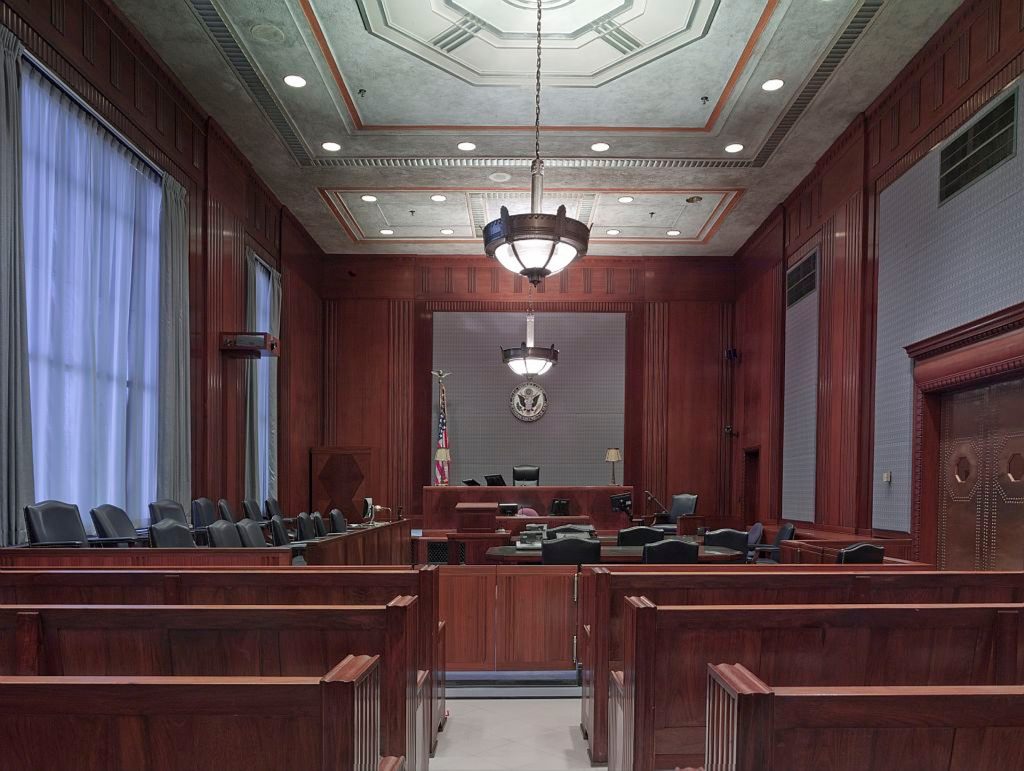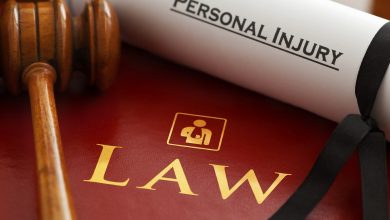Criminal Arraignment: What to Expect

One of the most common questions asked when it comes to the law is: “What is an arraignment?” An arraignment is not a trial. No witnesses are testifying, and there are no jurors present. An arraignment is the first step towards the actual trial when a defendant stands before a judge and is told precisely what charges have been filed against them. Usually, the charges are in writing, but sometimes they come orally. The most significant part of the arraignment is when the defendant enters a plea of either guilty or not guilty.
What is the Purpose of an Arraignment?
The original purpose of an arraignment was primarily due to the fact that often the defendant could not read. In these cases, a judge would speak out the specific charges so that the defendant would understand what potential punishment they faced and whether or not they should hire an attorney and secure witnesses.
While the original purpose is largely moot now thanks to modern education, an arraignment still serves multiple purposes for all parties involved. For the defendant, it gives your attorney the right of discovery to documents that the prosecution has in their possession. It’s also the first time that you and your lawyer will know what potential punishment you’re facing and how to create a game plan for combatting the charges against you.
An arraignment can be illuminating for you as the defendant but is especially helpful for your attorney. As your attorney prepares you for what to expect moving forward, the plan for your defense becomes much clearer. Any work that must be done or documents that must be secured in preparation for a trial will be known at the conclusion of your arraignment.
If the court believes that there is no probable cause or not a sufficient amount of evidence, you will be released, and your case will be dismissed. However, if probable cause is proven, your case will be brought in front of a trial court.

The Importance of an Arraignment
An arraignment may seem trivial and unnecessary, but do not underestimate the importance of this event. It’s the first time you meet face to face with the judge and the prosecution. These first impressions can help to shape your ultimate punishment. The prosecution will also likely have some sort of plea arrangement on the table, and this will be your first chance to consider your options moving forward. Do not underestimate the impact of the first impression you make at the arraignment and the character you put on display.
The arraignment is also an essential part of the process for your attorney. It is highly recommended that you go into your arraignment with hired counsel. Your representation can help to reduce charges and has a chance to discuss the case for the first time with the judge and prosecution. Due to the possibility of a plea deal at an arraignment, you will want to be present to discuss it with your attorney.
If you plead not guilty, a trial date will be set, as well as the amount of bail. If you decide to plead guilty, first consider striking up a plea deal with the prosecution. If no plea deal is available, a date may be set for sentencing, or the judge may choose to make a sentence and communicate any fines and probation. One final option that may be available is to plead “no contest.” A plead of “no contest” is typically viewed as a guilty plea, but you are not technically admitting you are guilty of the crime.
Misdemeanor Arraignment
If you are going to be charged with a misdemeanor, you may not have to personally appear in court for your arraignment. In most cases, your attorney’s presence will suffice. However, there are some exceptions. Do not skip your arraignment on the assumption that you do not need to be there. Check with your attorney first before making the decision not to appear.
If you do not yet have an attorney or cannot afford one, you must attend your arraignment. Your right to legal representation will be explained during the arraignment. At this time, the judge can appoint one for you as long as you request one and truly cannot afford to hire an attorney.
Felony Arraignment
The arraignment process will work the same for a felony, but there is an additional step of a preliminary hearing. You will not be entering a plea at your arraignment for a felony crime. That step is reserved for the preliminary hearing.
At the preliminary hearing, the government must convince a judge that there is enough evidence and probable cause to believe that you have committed a crime. If the judge decides that there is not enough evidence or probable cause, then the case will be dismissed. If probable cause and enough evidence is shown, the judge will set a trial date. The prosecution may hold back certain pieces of evidence and show just enough to prove a probable cause.
While you will not be offering evidence in your defense, you are typically required to be at the preliminary hearing. The purpose of the preliminary hearing is part of the checks and balances in the legal system, which ensure that the government has a valid case to move forward with.

What Happens If I Plead Guilty at an Arraignment?
If you plead guilty at your arraignment, there will be no need for a trial. You will receive your sentence at the judge’s discretion, and your charge could range from the minimum to the maximum amount of jail time. It is generally not recommended to plead guilty.
At the very least, you should consult with an attorney before making a plea of guilty. Some people who feel that they are guilty of a crime think that it will be worse for them if they plead not guilty and end up with a guilty verdict. But this is not the case. The justice system is designed for you to plead not guilty. In the United States of America, you are presumed innocent until proven guilty. It will be up to the prosecution to prove your guilt beyond any reasonable doubt to a jury.
If you are truly guilty of the crime and the details of your offense are likely to land you with a maximum sentence, it may seem to be in your best interest to forgo a trial and start the punishment as soon as possible. This is a natural human feeling, but every defense attorney on the planet will advise against pleading guilty.
If you hire a lawyer, your plea will almost always be not guilty. If the jury ultimately finds you guilty of the crime, your attorney should hopefully have secured you with a lesser sentence than you otherwise would have received by pleading guilty from the start.
When Does an Arraignment Happen?
If you are arrested, you can expect your arraignment to follow quickly. The arraignment may take place on the day of your arrest or the day after.
How a Case Starts
When someone gets arrested, the police will write up a report. The report shows a summary of everything that has happened up until the point of the arrest. If arrested, you will not be allowed to get a copy of this report. However, your attorney does have the right to see the initial police report. This is done to protect any potential witnesses that are identified in the police report.
The case will then be brought to the attention of a prosecutor who will decide whether or not to file charges, and if so, what charges to file. At that point, the prosecutor will determine whether the crime was a misdemeanor or a felony. The prosecutor has complete autonomy when it comes to what charges to pursue. They are not required to file all charges on the police report, but they are also not limited to the allegations in the writeup. If the prosecutor believes more charges are necessary and have probable cause, they will be added to the file.
All defendants have the right to a speedy trial, so the prosecutor must file their charges within a 48-hour period from when the defendant was taken into custody. Unfortunately, the following do not count against the 48 hours: weekends, court holidays, and mandatory court closure days. The deadline for scheduling an arraignment also depends on the time of day it was when the arrest took place. Check with your lawyer to find out exactly when you can expect your arraignment to take place.
Can You Go to Jail at an Arraignment?
Yes, it is possible that you can go to jail straight from an arraignment. This occurs when you cannot afford to pay the bail bondsman or if the judge has decided not to grant bail.
The Arrest
When you get arrested, there are three potential outcomes:
- You are released if the district or city attorney decides not to file charges.
- You post bail and are released with the promise to be back in court at a later date for the arraignment.
- You stay in jail and are eventually transferred to court for your arraignment by law enforcement officers.
What is Bail?
Bail is an exchange between you and the court to release you from jail during the time of your trial. The money required to meet bail is typically ten percent of whatever the bail is set at. For example, if bail is set at $5,000, the bail bondsman will charge $500 to be released.
When is Bail Not Allowed?
While denying bail may seem entirely unfair, there are many different reasons why the court will deny bail. The following are the most common reasons why someone’s bail would be denied:
Repeat Offender
If you’re repeatedly getting into trouble with the law, the court may decide that bail should be denied. This is especially true if you are arrested while already on parole. In this case, bail will likely not be offered.
Defendant Poses a Threat
If you are acting unhinged or unstable, a judge may decide that you pose a risk to either yourself or the people around you and deny bail. If mental instability is detected, you may be sent to a mental health treatment facility. Anyone considered a violent offender would also likely be denied bail.
Crime is Severe
If the crime is severe, bail may never be under consideration. The severity of the crime will be up to the judge to decide. If the death penalty is on the table, bail will not be offered.
Flight Risk
If someone has the means or motivation to take matters into their own hands and leave the state or country, bail may be denied. Anyone with a history of evading the law in the past could be in jeopardy of being denied bail. Those that are not citizens of the United States may also be more likely to have bail denied if they could easily return to their home country.
History of Missing Court Dates
The court wants to be reassured that you are someone they can rely on. A history of missing court dates will be an immediate red flag and may result in having bail denied.
What Happens When Bail is Denied?
If you are denied bail, you will be sent to jail until your next hearing. At the next hearing, you will be allowed to request bail a second time.
You can also appeal the decision on bail to a higher court in an attempt to get the bail decision reversed. Your attorney should have an idea if an appeal is likely to be successful.

What Happens After an Arraignment?
The judge will decide if bail will be offered or denied. If bail is offered and can be paid by the defendant, no jail time will be on the table between the arraignment and the conclusion of the trial. To describe what happens after an arraignment, we’ll use California’s law as an example.
Misdemeanor Charge
If you’ve been charged with a misdemeanor you can expect the following to take place after the arraignment:
- Your attorney and the prosecution will exchange information during the discovery phase. The amount of the discovery that you are allowed to see will be up to your lawyer. By law, lawyers are required to protect the identity of any witnesses while putting together their defense. This law is in place to protect any potential witness from being tampered with.
- The defense and prosecution have the option to file a variety of pretrial motions, which can potentially keep evidence from being used in the trial, cancel the complaint, or dismiss the case altogether.
- At any time, you are allowed to change your plea to guilty, not guilty, or no contest.
- During the time between the arraignment and future court dates, your attorney and the defense may discuss alternative ways for the case to be decided before the trial takes place.
Felony Charge
If you’ve been charged with a felony, the discovery process is the same as it would be with a misdemeanor. The ability to file pretrial motions is also unchanged, and you are still allowed to modify your plea from not guilty to guilty or no contest.
The most significant difference in a felony case is the pretrial hearing, which takes place following the arraignment. At the pretrial hearing, if the judge decides that there is enough evidence that you committed the crime, they will choose to move forward with a trial. If moving forward with a trial, the prosecutor must now file a document which is called “the Information.” You will then have a second arraignment to go over the Information, at which time you will enter your plea.
Setting the Trial Date
The process for setting a trial date differs from a misdemeanor to a felony.
Jury Trial for a Misdemeanor Case
If the defendant in custody at the time of the arraignment, the trial is required to start within 30 days of the plea or the arraignment, whichever date is later.
If the defendant was not in custody at the time of the arraignment, then the trial must start within 45 days of the plea or the arraignment, whichever date is later.
Jury Trial for a Felony Case
The prosecution has 15 days from the point at which the defendant was “held to answer” at the preliminary hearing to file their charges. The trial must then start within 60 days of the arraignment.
In both felony and misdemeanor cases, the defendant has the right to waive their right to a speedy trial. If this happens, the trial does not have to take place before the required deadline. This is also commonly referred to as “waiving time.” But even if the right to a speedy trial has been waived, the trial still must take place within ten days of the trial date being set. Defendants are urged to consult with their attorney before waiving time.



